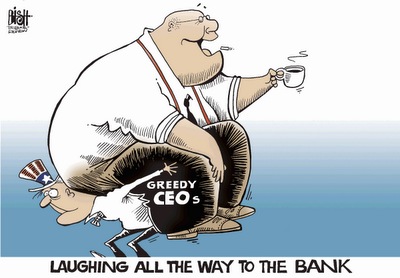Globalisation is a topic that attracts much controversy. What exactly is globalisation? How does it affect businesses, culture, technology, politics, economy and the society we live in.
"Globalization can be defined as the ability to produce and good or service anywhere in the world using capital, technology and components from anywhere and to sell the output anywhere and place the profits anywhere" - Peter Jay 1996
A process of the world responsible for producing and representing the ability to share and discuss many aspects of that which I have listed above. One of the biggest factors affected as a result of globalisation is businesses.
When companies participate in the emerging global economy and establish themselves in foreign markets, products and services are adapted to the meet the demands of the culture, economy and politics. Enough of the boring bits.
Here we go..
SUBWAY! EAT FRESH!
On an economic scale, SUBWAY has surpassed even the likes of MacDonald's.
http://www.theguardian.com/lifeandstyle/2011/mar/09/subway-biggest-fast-food-chain
By simply franchising its brand, SUBWAY has managed to opened more than 35,000 stores in the world. (SUBWAY)
SUBWAY broke barriers and rapidly increased international trade by doing so.
(Subway and its climb to the top)
This video is in english
SUBWAY was first opened by Fred DeLuca in 1965, Connecticut, USA.
SUBWAY 's franchising system is both efficient and effective, proving itself time and time again throughout the world.
One of the key strengths behind the success of the SUBWAY brand is the solid support network and robust processes in operation.
(Empire of Subway's franchisees worldwide)
It is achieved by 5 internal factors
1. Staff training
2. Close relations with franchisees (and some form of empowerment given)
3. Company purchases management (Manages the purchase and supply chain activity for all food, packaging, equipment and services in the UK and Ireland and other European countries)
4. Two-way communication (Sharing of best practices)
5. Brand Image ( SUBWAY sells millions of Subs every week in the UK and Ireland.)
Source :http://www.subway.co.uk/business/franchise/support_network.aspx
Ability to 'reproduce'
SUBWAY is able to have many stores due to its low start up costs($15,000) and the size of each store is smaller compared to regular restaurants. It can be build almost anywhere; inside superstores, gas stations, convenient stores etc.
Loss of identity
"The question of whether this is good or bad requires a glimpse at the international debate on globalization. Many expats living in Panama would not be here if not for globalization. Information technology allows me to live in Panama, manage people in the US and communicate with family and friends spread around the world. I could not live here if not for globalization; still I question whether it is good for the people." -
The writer has a valid point. Globalisation might induce unwanted change such as a lost of cultural identity. By introducing new products and services into a foreign land, it might have a negative impact in its cultural roots; food and working culture may digress from origin when SUBWAY is concerned.
Creating Job opportunities
By going global, SUBWAY has created thousands of job opportunities worldwide. Certain countries such as Singapore and Malaysia has a ratio of locals to foreigners employment rate policy. For every 6 locals only 1 foreigner is allowed to be employed, a form of safe guarding against negative aspects of globalisation.
A Subway store generates 8–10 jobs, which means there are about 350,000 jobs in the SUBWAY restaurants. With 1,200 positions at headquarters and regional offices and combining that with Subway partners, the vendors who supply goods, the farmers and meat manufacturers, food processing, and the equipment providers, you begin to see that Subway cuts a wide swath.
(Source: Personal analysis from an interview with Don Fertman(Subway's Director of Development)
http://www.qsrmagazine.com/executive-insights/subway-effect
Creating global health awareness for kids as a result of expansion
(Globalisation of technology)SUBWAY has devoted an entire website to kids to help build health awareness in a fun and captivating way, supported by celebrities such as Michael Phelps. (SubwayKids.com)
Cost effective (Global economic interdependence)
SUBWAY's meat is produced in Denmark, Thailand, Uruguay, German and the U.K. The region(s) closest to the location production will save costs by importing directly from SUBWAY owned production lines. Thailand is SUBWAY's largest manufacturer. As a result of this, the store depends on the supply of meat to make sandwiches, and the manufacturers depend on payment from the store to continue production.
Legal issues
Subway has had so many legal issues like any other franchised business, however Subway was in a league of its own due to the shocking number of 160 legal cases more than the combined total of MacDonalds, KFC, Wendys and TacoBells' legal cases.
(Reference: Federal Trade Commision annual report)
Some of Subway's franchise terms are illegal in certain states. The agreement requires arbitration of all disputes in Connecticut regardless of store location and caps awards at $80,000. (Subway has found a way to skip arbitration by signing leases with landlords and then subletting stores to franchisees; as de facto landlord, Subway can quickly evict owners in a dispute.)
An Illinois court has condemned the arbitration because it "lacks mutuality"
and awarded more than $10 million in damages to Nicholas and Victoria Jannotta after finding lease and contract violations. (Reference : Robert Lee Allen, Nations Restaurant News)
In Michigan, officials discovered in 1989 that Subway was not registered to do business there. When it did register, it listed only two of nine contract clauses that are unenforceable in that state.
Creating global health awareness for kids as a result of expansion
(Globalisation of technology)SUBWAY has devoted an entire website to kids to help build health awareness in a fun and captivating way, supported by celebrities such as Michael Phelps. (SubwayKids.com)
Cost effective (Global economic interdependence)
Legal issues
Subway has had so many legal issues like any other franchised business, however Subway was in a league of its own due to the shocking number of 160 legal cases more than the combined total of MacDonalds, KFC, Wendys and TacoBells' legal cases.
(Reference: Federal Trade Commision annual report)
Some of Subway's franchise terms are illegal in certain states. The agreement requires arbitration of all disputes in Connecticut regardless of store location and caps awards at $80,000. (Subway has found a way to skip arbitration by signing leases with landlords and then subletting stores to franchisees; as de facto landlord, Subway can quickly evict owners in a dispute.)
An Illinois court has condemned the arbitration because it "lacks mutuality"
and awarded more than $10 million in damages to Nicholas and Victoria Jannotta after finding lease and contract violations. (Reference : Robert Lee Allen, Nations Restaurant News)
In Michigan, officials discovered in 1989 that Subway was not registered to do business there. When it did register, it listed only two of nine contract clauses that are unenforceable in that state.
A domino effect is very evidently present in this situation. Subway never rectified its problems since the beginning and has led people into believing in its 'ethical' business sense. This has in-turn led to the dismay of franchisees feeling cheated when something goes wrong and Subway decides to 'Shut them down'. It just goes on in a loop whenever such situations arise.
Unhappiness within the community

Hence, we can see that anger and unhappiness are far more prevalent among Subway's franchisees than any other major chain.
Global Culture change
As a result of this act, sandwich businesses might not be able to use the word 'Footlong' and will have to re-brand/strategise their menus/billboards.

I would suggest that this is an act of human greed. In hopes of forcing small businesses in every way possible to evict, as if setting up a Subway across the road wasn't detrimental enough.
Political Issues
Subway is facing problems from the effects of 'Obamacare', also known as the 'Affordable Care Act' in the states. The sudden government intervention on payroll sets itself to increase minimum wages and to end the payroll tax holiday.
1)Payroll taxes (USA)
This regulation has affected the overall sales of Subway by 2% in the states. It not only puts pressure on the company but on consumers also. An increase in taxes would lead to an increase of price.
2)Minimum wages (USA)
Another adverse effects is the sudden rise of minimum wages in the states. As a rise in wages would lead to a similar effect on the price set by franchisees regionally.
3)Biased VAT treatments (UK)
In October 2010, Subway franchisees in the UK lost a high court appeal against paying standard VAT on all toasted subs, as required by HM Revenue and Customs. In the UK, toasted sandwiches incurs VAT, however a cold sandwich, eaten off the premises, does not. Competitors such as Quiznos and McDonald's do not pay VAT on similar food. (Reference: "Subway VAT appeal: Subway loses". Howlader & Co. November 4, 2010.
Health issues brought to other countries as a result of globalisation (Complacency)
Subway has been feeding people with bread and chicken filled with toxic chemicals in small portions in a bid to cut cost. It contains chemically engineered ingredients such as petroleum. In short, the ingredients contain so much preservatives, they wouldn't rot for years. However Subway claims it is following the guidelines set by the government.
(Reference & Email containing proof of Subway's ignorance: http://healthwyze.org/index.php/component/content/article/540-the-2010-worst-restaurant-of-the-year-award-goes-to-subway.html
Conclusion
It is impeccable as a rule of thumb for any business to observe, understand and adapt to the political environment due to the significant effects which will directly/indirectly affect a business.
Some factors to consider are:
1. Constancy of the government
2. Type of Government (democratic, dictatorship, monarchy, etc)
3. The government have Economic policy
4. Available Trade policy
5. Diplomatic actions in nearby countries
Furthermore, political context can change for the foreseeable future.
Political Issues
Subway is facing problems from the effects of 'Obamacare', also known as the 'Affordable Care Act' in the states. The sudden government intervention on payroll sets itself to increase minimum wages and to end the payroll tax holiday.
1)Payroll taxes (USA)
This regulation has affected the overall sales of Subway by 2% in the states. It not only puts pressure on the company but on consumers also. An increase in taxes would lead to an increase of price.
2)Minimum wages (USA)
Another adverse effects is the sudden rise of minimum wages in the states. As a rise in wages would lead to a similar effect on the price set by franchisees regionally.
3)Biased VAT treatments (UK)
In October 2010, Subway franchisees in the UK lost a high court appeal against paying standard VAT on all toasted subs, as required by HM Revenue and Customs. In the UK, toasted sandwiches incurs VAT, however a cold sandwich, eaten off the premises, does not. Competitors such as Quiznos and McDonald's do not pay VAT on similar food. (Reference: "Subway VAT appeal: Subway loses". Howlader & Co. November 4, 2010.
Health issues brought to other countries as a result of globalisation (Complacency)
Subway has been feeding people with bread and chicken filled with toxic chemicals in small portions in a bid to cut cost. It contains chemically engineered ingredients such as petroleum. In short, the ingredients contain so much preservatives, they wouldn't rot for years. However Subway claims it is following the guidelines set by the government.
(Reference & Email containing proof of Subway's ignorance: http://healthwyze.org/index.php/component/content/article/540-the-2010-worst-restaurant-of-the-year-award-goes-to-subway.html
Conclusion
It is impeccable as a rule of thumb for any business to observe, understand and adapt to the political environment due to the significant effects which will directly/indirectly affect a business.
Some factors to consider are:
1. Constancy of the government
2. Type of Government (democratic, dictatorship, monarchy, etc)
3. The government have Economic policy
4. Available Trade policy
5. Diplomatic actions in nearby countries
Furthermore, political context can change for the foreseeable future.








i read this article with great interest having nice information.
ReplyDeleteversions of Windows 11 Crack 2022